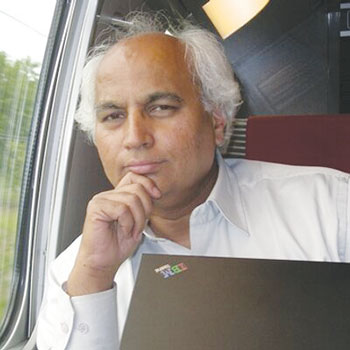Alarming state violence against universities

Sudheendra Kulkarni
There is something troubling, even scary, about the manner in which the Narendra Modi government is handling the critical education sector, specifically higher education. The dreams of Young India cannot be realised unless the government pays focused and sustained attention to introducing much-needed improvements in all facets of education — quality, affordability, universal access, relevance, technological innovation, among others. But what has it achieved so far in five-and-a-half years? Three HRD (human resource development) ministers. Two high-level committees tasked with preparing the promised new National Education Policy 2019. The year 2019 is over, but the new NEP is nowhere in sight. However, let’s leave that aside for the time being.
We now have a Union HRD minister who is on record as having proclaimed that ancient India was so well advanced in science and technology that it conducted nuclear tests several centuries ago. This fanciful claim has recently been endorsed by another worthy — the governor of West Bengal (also the chancellor of all public universities in the state) who avers that Arjuna’s arrows in the Mahabharata were nuclear tipped. Should purveyors of such pseudo-science, be occupying critical positions in education? Let’s leave that also aside for the time being.
Why leave aside this combination of incompetence and fake gyan? Because something scarier is happening. Violent attacks on universities countrywide. Video clips of masked goons, armed with iron rods and lathis, who stormed Jawaharlal Nehru University (JNU) in the national capital on January 5 and beat up students and teachers as police turned a blind eye, have outraged the nation and severely damaged India’s reputation globally. How could this have happened in India’s premier university? Is India still a democracy governed by rule of law?
These questions assail the minds of all right-thinking Indians and India’s friends abroad. As facts tumble out, it has become clear this was a well-planned attack — with the police and university authorities standing by as mute spectators — organised by activists of a students’ organisation aligned with the ruling BJP, and the larger sangh parivar. The attack was directed at student members of rival leftist unions. The image of the blood-splattered face of Aishe Ghosh, president of the JNU Students Union will surely endure as a reminder of one of the dubious ‘achievements’ of the Modi government in education. Till the time of writing this essay — i.e, 11 days after the incident — the police has yet to make a single arrest.
The attack on JNU needs to be seen in the larger context of the hindutva establishment’s agenda of thought control in India’s institutions of higher education. Maligning Nehru and Nehruvian secularism, a cornerstone of the Indian Constitution, is an integral component of this agenda. No less a worthy than Union home minister Amit Shah without offering any proof, has charged JNU as being the hub of the “tukde tukde gang” hell-bent on dismembering India. Intolerance towards ideological and political opponents has reached frightening levels, to the extent that they are routinely insulted as “anti-nationals”. A favourite slogan of pro-government supporters is unspeakably offensive — “desh ke gaddaron ko, goli maaro saalon ko” (shoot the traitors).
The violent attack on JNU, a predictable outcome of this mindset is reprehensible. But the conduct of the police in Aligarh Muslim University (AMU) in Uttar Pradesh and Jamia Millia Islamia University in Delhi in mid-December, was even worse. In both instances, police attacked students. It must also be noted that, whereas the proximate cause of the JNU agitation was a proposed hike of hostel fees, the police assault on AMU and Jamia Millia students was to suppress their protests against the Modi government’s two most polarising initiatives — the Citizenship Amendment Act (CAA) and National Register of Citizens (NRC). Massive and mostly peaceful anti-CAA agitations have spontaneously mushroomed all over the country. However, deaths due to police firing have occurred only in BJP-ruled UP (22) and Karnataka (2).
These developments are alarming and ominous. Nevertheless, on the positive side, a huge number of students across the country have responded with brave, non-violent protests. Supporting rallies to condemn targeted attacks on universities and to denounce CAA-NRC have been organised in prestigious universities all over the world. It is arguable this is the biggest student struggle in the history of independent India, bigger even than the NavNirman student movement of the mid-1970s led by the venerable Jayaprakash Narayan, which was confined mostly to Gujarat and Bihar.
The coming months and years are going to be very difficult for all those who believe in academic freedom, plurality of views, critical thinking and healthy debate in temples of education. But we must rise to the challenge, just as lakhs of young and intrepid students of both sexes have already done.
(Sudheendra Kulkarni served as an aide of India’s former prime minister Atal Bihari Vajpayee)















Add comment